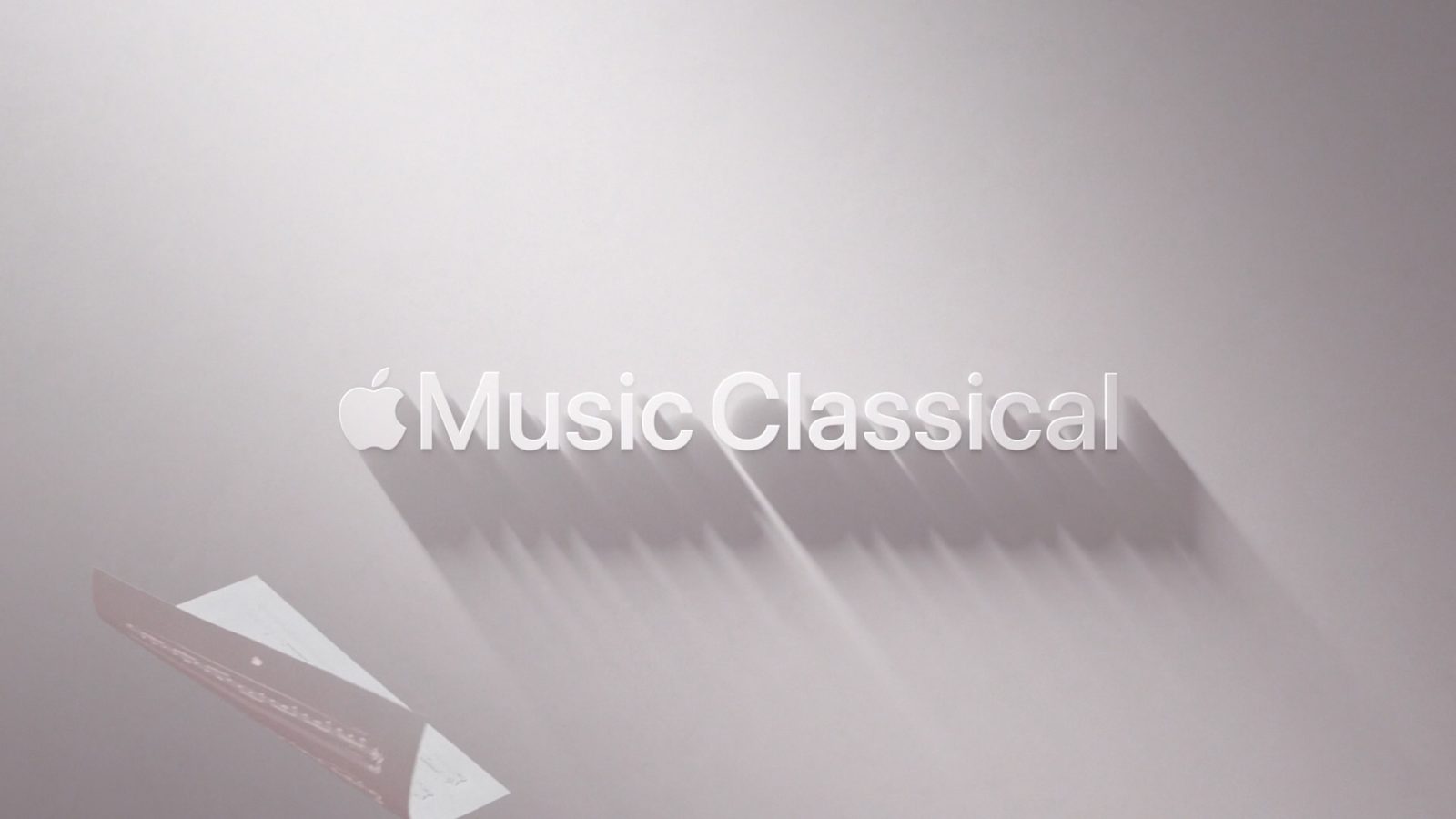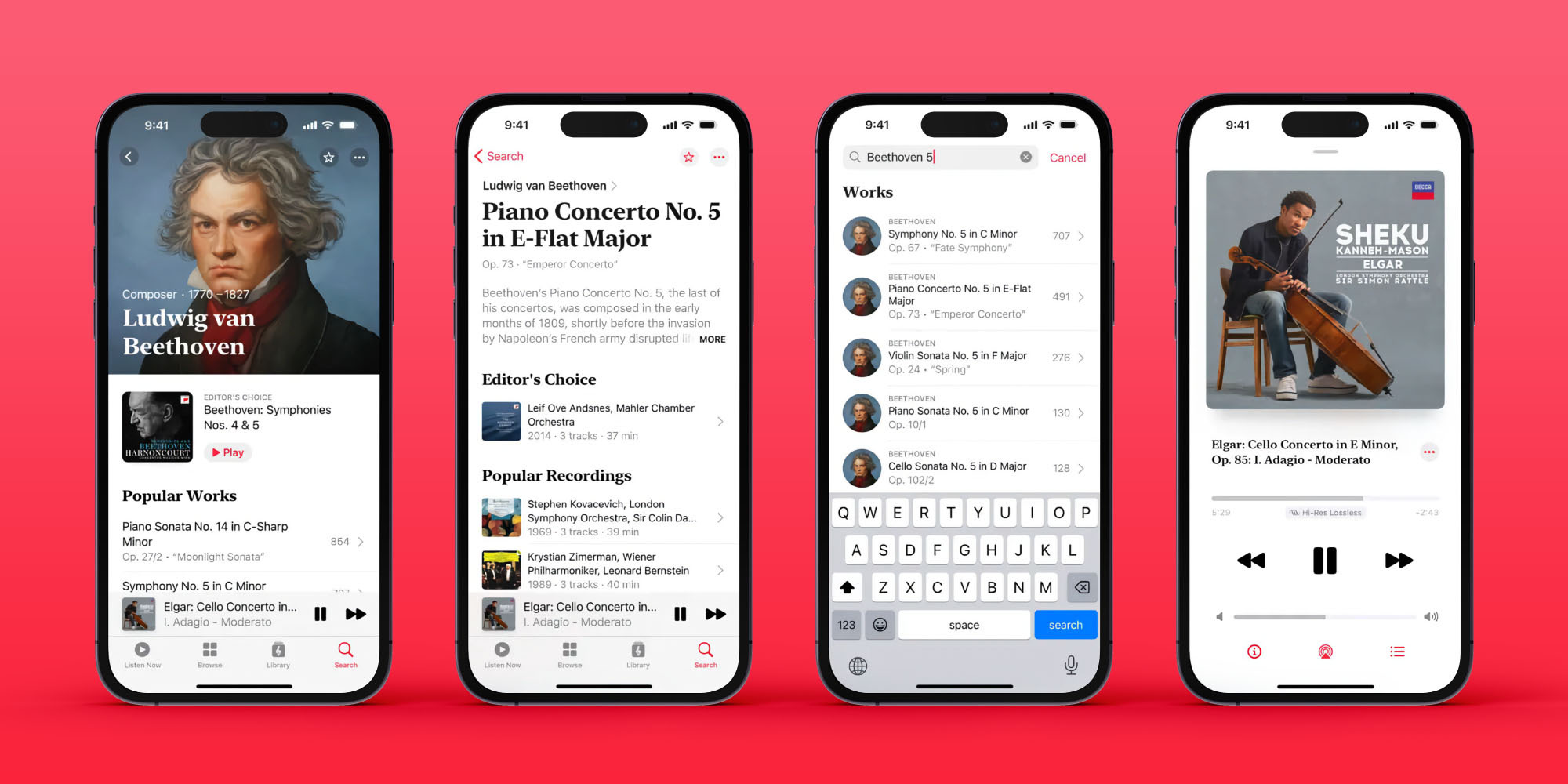
Apple has acquired the classical music streaming service Primephonic in 2021 with a promise to integrate it with Apple Music in the future with a new “Classical” app. After nearly two years, Apple has finally confirmed that Apple Music Classical will launch later this month. And it comes with something that regular Apple Music should definitely have but doesn’t: a stand-alone app.
Apple Music Classical is a stand-alone app
First, for those unfamiliar, Apple Music Classical is a new app from Apple based entirely on Apple Music. However, it has been optimized for classical music, so some things in the interface have been changed, such as the typography, search, and descriptions. But the core of the app is the same as the Apple Music we all already know on the iPhone.
But while Apple Music comes preinstalled on every iPhone and iPad because it’s part of the system, Apple Music Classical is a separate app that can be downloaded from the App Store once available. This comes with huge benefits for users, while the regular Apple Music app faces a lot of limitations just like other Apple apps.
The first benefit is that Apple Music Classical will be available for a wider variety of Apple devices. According to Apple, any iPhone user running iOS 15.4 or later will be able to install Apple Music Classical from the App Store. Not only users won’t need to download an entire iOS update to get a new app, but it will also run on iPhone models that can’t be updated to iOS 16, such as the iPhone 6s and iPhone 7.
The fact that the app will be distributed through the App Store will also allow Apple to update Apple Music Classical with bug fixes and new features more frequently. Meanwhile, every minor change Apple wants to make to the Apple Music app requires the company to release a new version of iOS.

Apple apps need more frequent updates
I have already complained once here about how Apple keeping its apps totally tied to the core operating system is bad when it comes to updates. Every time the company needs to fix a serious bug affecting one of its apps, the whole process takes a few days because Apple needs to create a new iOS build to include that fix.
Some key apps should definitely get stand-alone updates, and this includes Apple Music, Safari, and other apps related to Apple services. It’s ironic, for example, how Apple Music for Android gets some features before the iOS version just because it’s a stand-alone app. A service like Apple Music shouldn’t make users wait months or even a whole year to get major updates.
Apple Music Classical still relies on some internal components of the operating system. Still, Apple should do the same with its other apps to make them more independent. Android beats iOS in this respect without question since Google’s apps can all be updated through the Play Store without requiring a system update.

If there’s one feature request I have for iOS 17, it’s for users to be able to get system app updates through the App Store. Apple is finally doing something similar with security patches. Now it’s time to do it for apps.
FTC: We use income earning auto affiliate links. More.



Comments